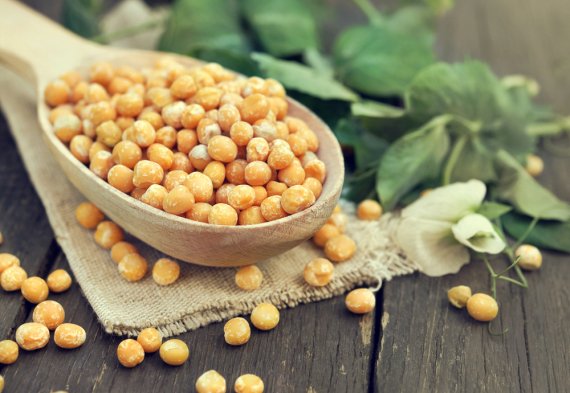Raw concentrates, from yellow peas for example, work well as a thickener.©Shutterstock
Food producers often use refined powders, such as protein isolates or modified starch, in the manufacture of their products. But it costs a lot of energy to make these powders. What is more, chemicals are often required and the leftover products are unsuitable for consumption.
PhD candidate Geerts discovered that there are more sustainable options. Less refined concentrates — obtained by grinding the raw material, mixing it with water and using a centrifuge — turned out to work fine in composite food products. Geerts demonstrated this for yellow peas. She produced a less refined starch fraction that also contained fibres; it worked well as a thickener. A less refined protein fraction was an excellent emulsifier.
The milder processing was also a lot more sustainable than the production of powders. Thickeners made from yellow peas use up to 40 percent less energy and raw materials per unit of viscosity than a commercial starch powder. In addition to sustainability, Geerts sees the natural image of concentrates as a key advantage. Lots of consumers don’t like E numbers and manufacturers that use a less refined concentrate can put ‘pea extract’ on the packaging, for instance.
But concentrates have downsides too. Transport and storage costs are higher. ‘And they contain impurities — in particular polyphenols — that can produce an undesirable colour, smell or taste. Yellow peas contain bitter components, for instance,’ says Geerts. A follow-up project is being considered in which researchers will examine these impurities.

